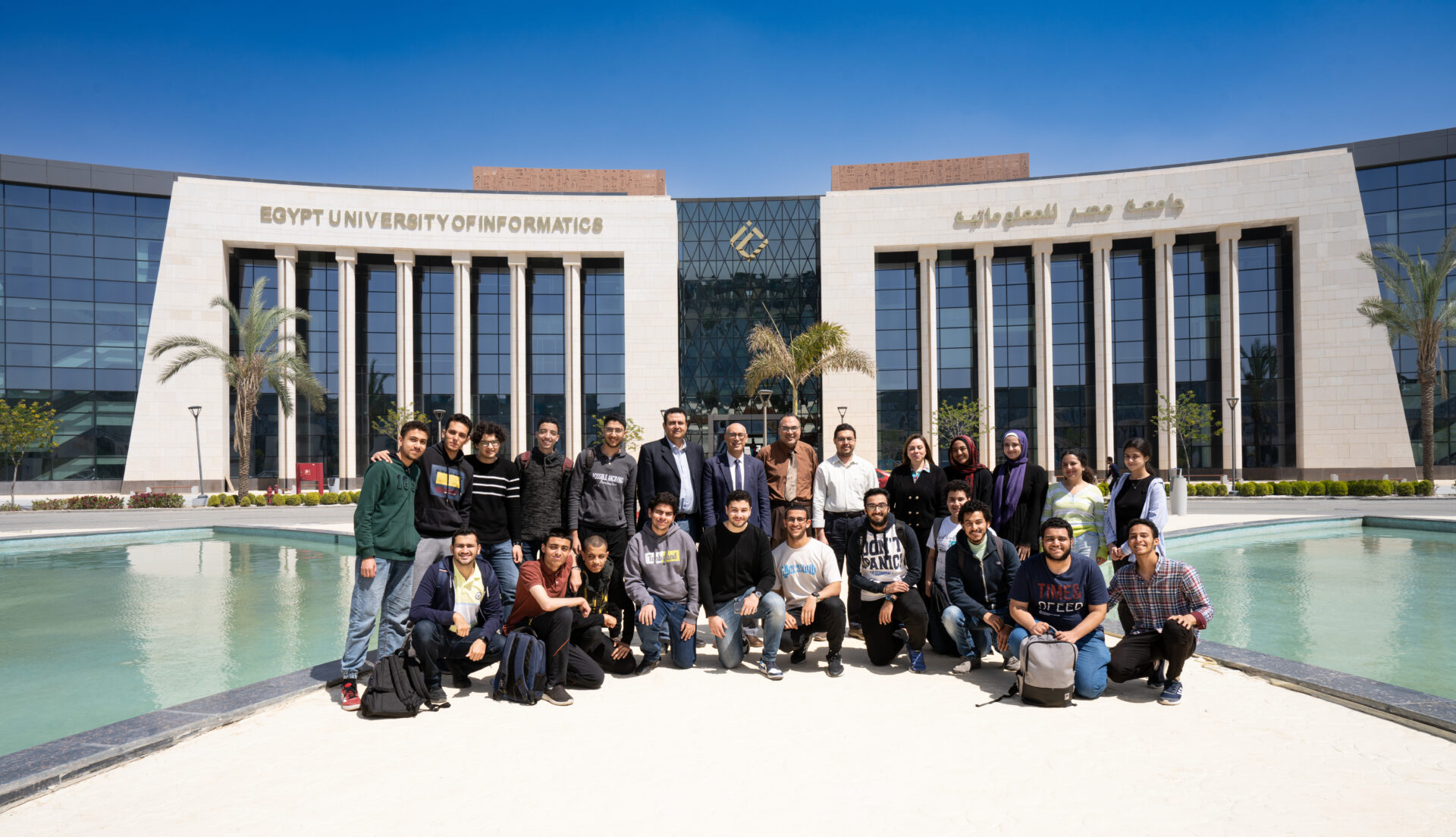
Baseera Foundation Holds Workshop on Academic Support for Visually Impaired Students

EUI hosted Mrs. Doaa Mabrouk, Managing Director of Baseera Foundation, today to conduct a workshop on the best and latest academic practices for supporting visually impaired students. The workshop aimed to introduce faculty members—especially teaching assistants—to effective ways of engaging with students with special needs and to familiarize them with the latest educational tools and electronic programs that assist visually impaired students in their learning, while addressing factors that may affect academic performance depending on the degree or onset of disability.
Prof. Ahmed Hamad, Acting President of EUI, stated that the university is committed to providing the best inclusive educational environment that enhances students’ capabilities and promotes their integration—including blind and differently abled students—into both academic and social activities, thereby ensuring a fair and equitable learning experience for all.
He confirmed that EUI has adopted a set of accommodations for students with special needs, particularly during midterm and final exams. These include additional time, alternative exam methods such as computer-based exams, the use of an assistant writer, multiple-choice formats, recorded oral exams, and the exemption of spelling or grammatical errors unless they are a core part of the course assessment.
He added that this package of academic accommodations also includes study skills support, deadline extensions for submitting assignments, and permission for students to have personal assistants to take notes during lectures or review their reports. The university is also exploring the installation of assistive technologies and software in certain computer labs according to students’ needs.
The workshop also reviewed Braille-based learning tools and other free technological resources that support visually impaired students, as well as interactive activities designed to encourage their integration with peers. Participants explored some of the best technological programs that enhance inclusive learning and engaged in collaborative exercises aimed at promoting interaction between visually impaired and sighted students.
Dr. Mohamed Ismail, Supervisor of the Student Life Office at EUI, explained that many students with disabilities continue their higher education despite having diverse academic needs that vary by disability type. Although they represent a small percentage of the student body, the university is fully committed to supporting them in achieving their dreams and ensuring their participation in the job market, not as a burden on their families but as an added value and a driving force for economic development.
He added that EUI has established the Well-being and Mental Health Unit, headed by Dr. Sanaa Nabawy, to support students—particularly those with special needs. The unit provides multiple services in collaboration with the “Mersaa” student club. Its vision is to create a supportive and inclusive community where students can nurture their physical and mental well-being while fostering communication and social responsibility. The unit also offers professional and psychological support, including one-on-one therapy sessions and specialized workshops to help students reach their full potential.
The workshop was attended by Dr. Abdel Moneim El Sharkawy, President of the National Academy for Information Technology for Persons with Disabilities, and Prof. Mohamed Saleh, Dean of the Faculty of Business Informatics, along with a large number of assistant lecturers, academics, and students.

